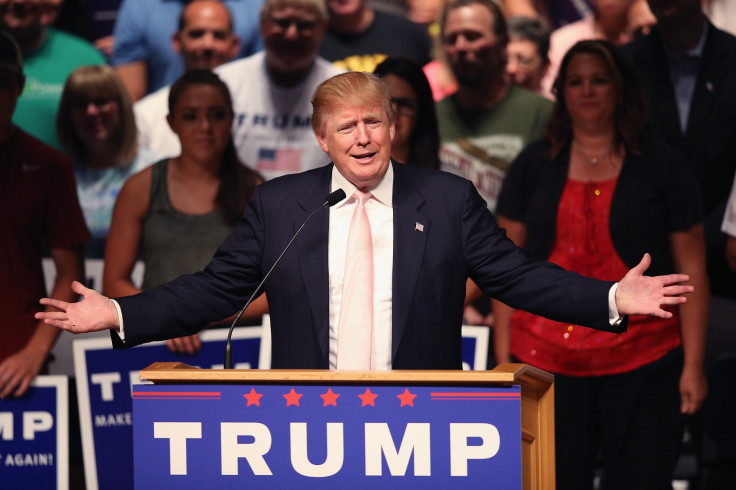Editor Of New York Observer, Owned By Trump’s Son-In-Law, Lashes Out About Trump Coverage

How do you cover politics and not cover Donald Trump? The New York Observer will show you. While the ex-reality star and Republican presidential candidate continues to dominate both polls and news coverage, the fabled weekly's politics section hasn't written about him in two weeks.
In that span of time, Trump has fielded accusations of sexual assault, mocked the war service of former presidential candidate Sen. John McCain, R-Ariz., and motored out to the Mexican border, all after receiving heat for repeatedly calling immigrants “rapists” and "killers" in June.
The Observer’s website covers news and politics daily, including the national presidential campaigns, from Hillary Clinton to Bernie Sanders to Jeb Bush to Scott Walker. Yet, despite Trump’s surging poll numbers -- he’s far ahead of Jeb Bush in two polls -- and his endless stream of gaffes, the Observer treats the ubiquitous front-runner of the GOP presidential field as a peripheral story.
Covering Trump, Sorta
It’s a significant departure from its usual practice. The Observer made its name from covering the larger-than-life personalities of politics and power, particularly those who are, like Trump, from New York City. As Huffington Post’s Michael Calderone pointed out in an article about the Observer’s lack of op-eds on the mogul-turned-candidate, the paper once crowned Trump the king of New York’s power elite in a 2009 cover.
Of course, Trump’s son-in-law Jared Kushner bought the Observer in 2006, hiring on editor Ken Kurson in 2013. Every post on Trump bears a disclaimer stating the connection. So covering Trump in the opinion section, or even as a pure news story, is an understandable challenge for the paper.
But the Observer isn’t refusing to cover Trump at all. It is, instead, choosing to treat Trump as if he were a minor story, even as the former “Apprentice” host leads Republican polls heading into the first Republican presidential debate on Aug. 6 in Cleveland.
Since Trump launched his campaign, the paper has run two news stories on him, about New York Gov. Andrew Cuomo and New York City Council Speaker Melissa Mark-Viverito attacking Trump. A third article covered Trump’s spat with rocker Neil Young, which was filed under Culture.
'Greasy Trolling'
On Wednesday, International Business Times contacted Kurson, who called IBTimes’ questions “greasy” and denied that he felt any pressure to place Trump on the periphery.
“Your greasy trolling for Trump clicks by asking other journalists to comment on how the Observer does or does not cover Trump is exactly the reason I'm reluctant to cover Trump more than necessary,” Kurson wrote.
“The Observer has had zero pressure from its publisher in our coverage. Zero,” he told IBTimes in a subsequent email. "[W]e are limiting our coverage because the perception of a conflict is unavoidable. As this unpleasant exchange has proven.”
Kurson proceeded to publish his own post on the Observer, “ When Donald Trump Is the Father-In-Law of Your Publisher,” lamenting his position of defending the paper’s Trump coverage and publishing the email correspondence with IBTimes.
He accused IBTimes of having “invented” a quote (we did not) and said that these types of questions from fellow reporters proved “why I was right to be reluctant for the Observer to write about Donald Trump, despite how awesome it’d be to benefit from the same Trump traffic spikes other sites are enjoying.”
Calderone’s piece quoted a memo from Kurson in which he said the Observer’s situation in covering Trump is “unique.”
“If we run something pro-Trump, we will automatically be accused of carrying water for him (on account of the relationship to our publisher),” he wrote to staff. “If we run something anti-Trump, we will be accused of trying to curry favor with our peers in journalism or worse, intentionally being only a little hard on him so that later we can love him up and point to the earlier softball as proof that we're fair.”
“Normally, I don't give a s--- what people think of what we do -- I just want us to try to do the right thing and people can say what they're going to say,” he continued. “But this situation is unique.”
© Copyright IBTimes 2024. All rights reserved.












